Key Takeaways
-
Eliminate Standing Water: Mosquitoes lay eggs in stagnant water—regularly empty birdbaths, flowerpots, and gutters to disrupt their breeding cycle.
-
Plant Mosquito-Repelling Plants: Lavender, citronella, and basil naturally deter mosquitoes while enhancing your garden’s look and scent.
-
Install Screens and Nets: Use porch screens and mosquito nets over seating or dining areas to create protected outdoor spaces.
-
Use Repellents: Apply repellents like DEET, picaridin, or oil of lemon eucalyptus for reliable personal protection.
-
Invest in Mosquito Devices: Devices like traps, repellent lanterns, and electric fans help keep mosquitoes away from your yard and patio areas.
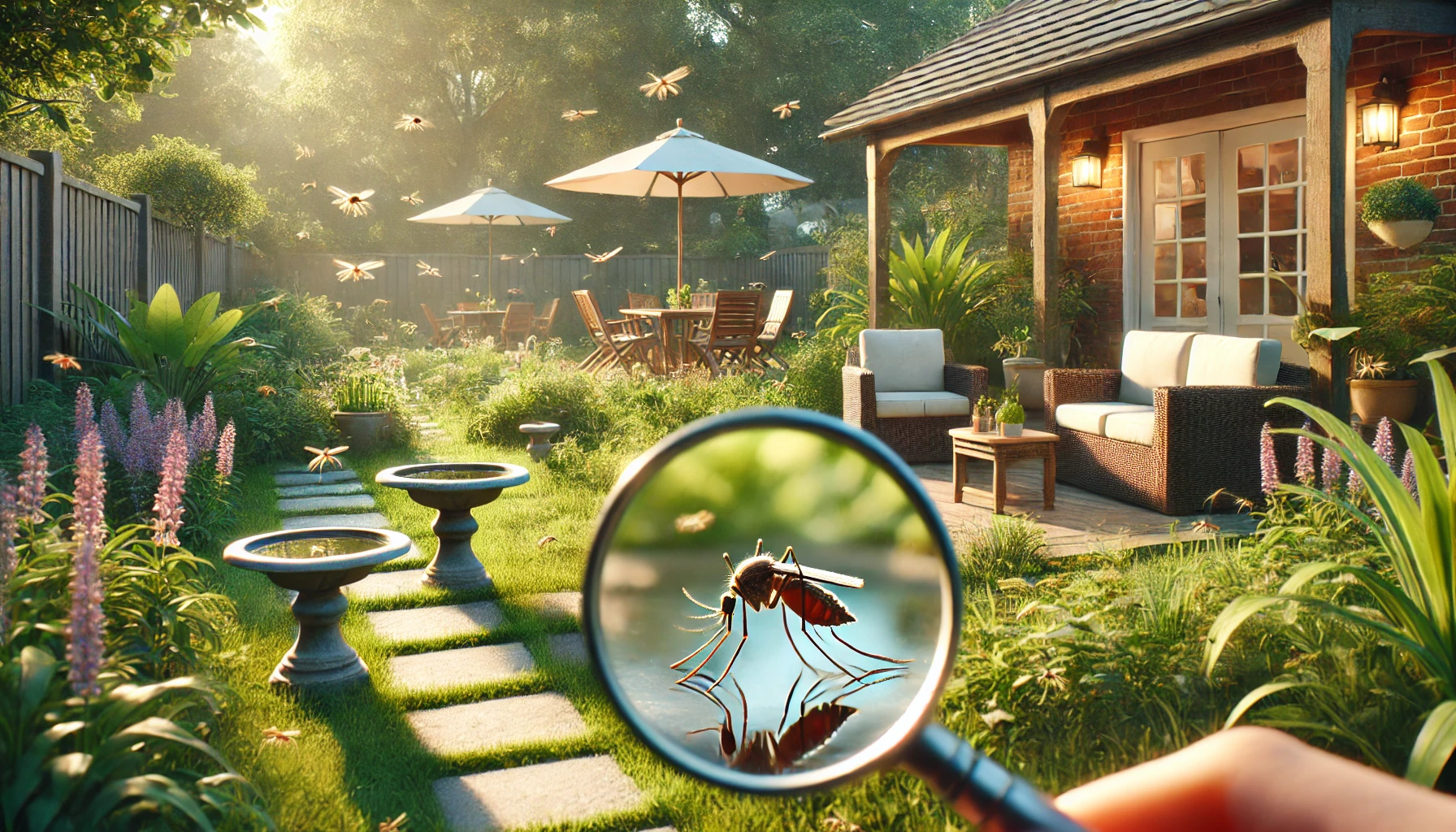 We are all there – you are outside, enjoying fresh air, maybe some are immersing on the cold, when suddenly, bam – a mosquito land on your arm. And then itching. You know one. It’s disappointing, isn’t it? These small organisms have a supernatural ability to waste a good time and also live a life. But here is the case: you do not need to have mosquitoes to have your external fun. With just a few tweaks for your routine and location, you can place them in the Gulf and recover your backyard.
In this guide, we’ll show you how to make your yard a mosquito-free haven with practical, effective solutions to help you relax and enjoy your time outdoors. Let’s get to it!
We are all there – you are outside, enjoying fresh air, maybe some are immersing on the cold, when suddenly, bam – a mosquito land on your arm. And then itching. You know one. It’s disappointing, isn’t it? These small organisms have a supernatural ability to waste a good time and also live a life. But here is the case: you do not need to have mosquitoes to have your external fun. With just a few tweaks for your routine and location, you can place them in the Gulf and recover your backyard.
In this guide, we’ll show you how to make your yard a mosquito-free haven with practical, effective solutions to help you relax and enjoy your time outdoors. Let’s get to it!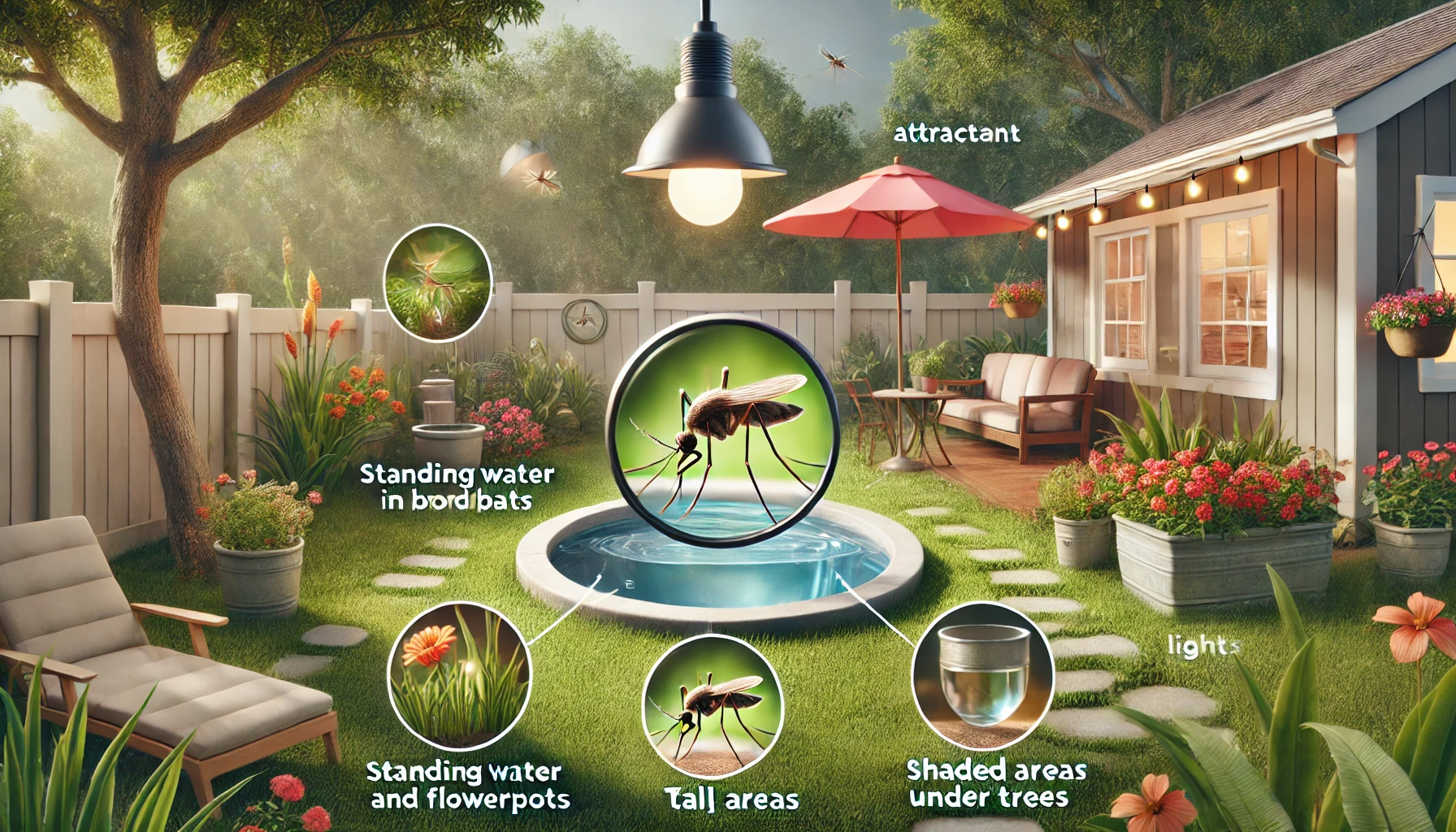

Not getting a solution?
Get your free pest control estimate today!What Attracts Mosquitoes to Your Backyard?
- Before you can keep mosquitoes away, it’s helpful to know why they’re so interested in your backyard. The answer lies in a combination of factors, and understanding them can help you take control.
-
Carbon Dioxide: Mosquitoes are drawn to the carbon dioxide we exhale—making humans a reliable signal for their next blood meal.
-
Heat: Your body’s warmth, especially on hot summer evenings, makes you more appealing to mosquitoes looking for a host.
-
Body Odors: Sweat and compounds like lactic acid released through your skin attract mosquitoes seeking chemical cues.
-
Movement: Mosquitoes can detect motion, so walking or even subtle movements can draw them toward you.
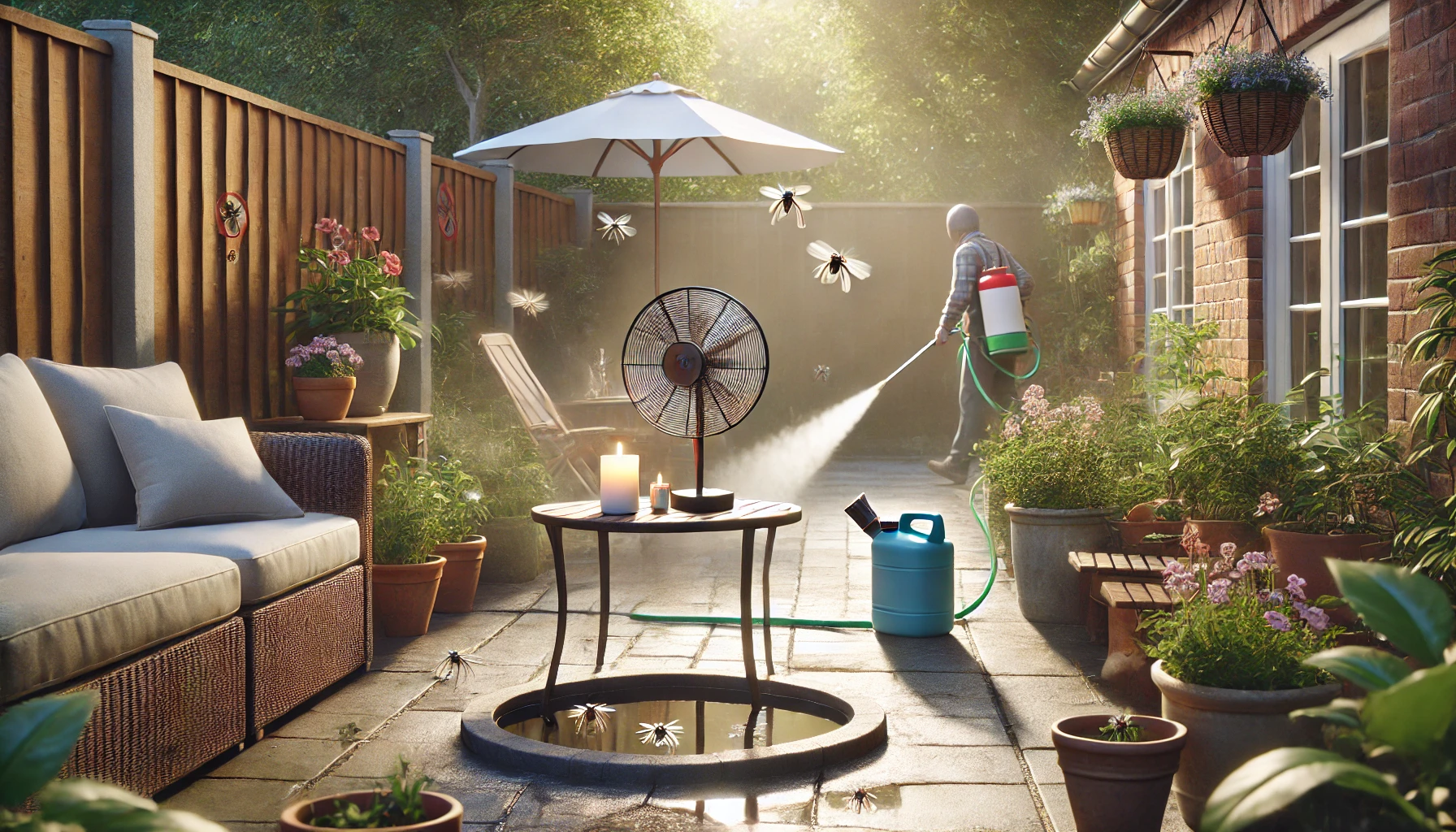 That’s why mosquitoes are so pesky—they’ve got all these ways to find us. But don’t worry. You can do a lot to make your space less inviting to them.
That’s why mosquitoes are so pesky—they’ve got all these ways to find us. But don’t worry. You can do a lot to make your space less inviting to them.Step 1: Say Goodbye to Standing Water
Clearing standing water on your lawn is essential if you want to eliminate mosquitoes before they even begin. Mosquitoes need water in order to reproduce, so the task is straightforward: remove it. You would be amazed at how many mundane household objects contain water and can become breeding centers for mosquitoes.Remove Standing Water
-
Birdbaths: Change the water at least once a week to prevent mosquitoes from laying eggs—more often during hot or rainy weeks.
-
Flower Pots: Empty any standing water after rainfall to stop mosquito larvae from developing in saucers or pot bases.
-
Clogged Gutters: Clear leaves and debris regularly to prevent water from pooling in your gutters—an ideal mosquito breeding ground.
-
Puddles: Look for hidden puddles under tarps, pool covers, or around water features and drain them to avoid infestations.
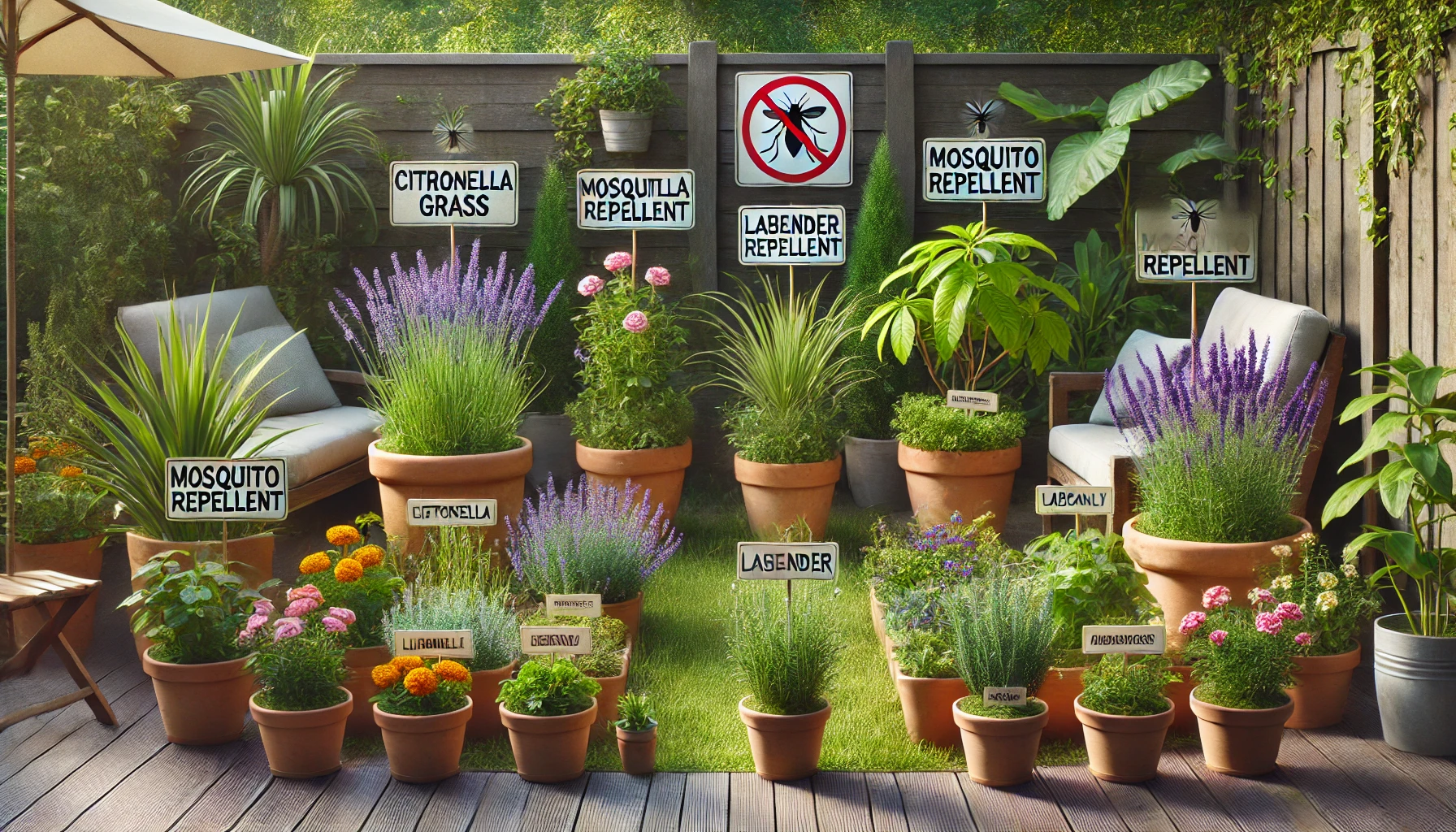
Step 2: Bring in the Mosquito-Repelling Plants
Now that we’ve covered the water situation, let’s talk about nature’s mosquito repellent: plants. You can grow certain plants in your backyard that can help keep mosquitoes at bay. Extra Advantage, they look good too!Mosquito-Repellent Plants You'll Love
-
Lavender: Beautiful and fragrant, lavender repels mosquitoes while enhancing your garden’s look and scent. Great near patios and seating areas.
-
Citronella: Commonly found in candles, citronella can also be planted directly in your yard or pots for natural mosquito defense.
-
Lemongrass: Packed with citronella, lemongrass not only deters mosquitoes but also adds a fresh citrus scent to your garden.
-
Basil: Useful in the kitchen and in the garden, basil is a great herb that also keeps mosquitoes at bay.
-
Marigolds: These colorful flowers emit a scent that repels mosquitoes and other pests while brightening up your outdoor space.
Step 3: Add Some Physical Barriers
Sometimes, the best defense is a solid barrier that physically keeps mosquitoes from getting too close.Install Screens
-
Screened-In Porch: Add screen doors and windows to your porch or deck to enjoy the outdoors without mosquitoes. It’s a simple upgrade that makes a huge difference.
-
Window and Door Screens: Use fine mesh screens on windows and doors, and check for gaps or tears that might allow mosquitoes inside.
Use Mosquito Nets
-
Dining and Lounging Areas: Drape mosquito nets over outdoor dining tables or seating areas for a cozy, bite-free experience—perfect for evening meals or gatherings.
-
Sleeping Outside: When camping or relaxing outdoors, mosquito nets are essential for a peaceful, bite-free rest.

Step 4: Try Out Mosquito Repellents
Mosquito repelles are tried and working methods work. Whether you are using sprays, candles, or other devices, it is as simple to repeat these insects as to apply some well -chosen products.DEET-Based Repellents- DEET is the most common active components in mosquito repellents. While some may not like its smell, DEET is has been proven effective in preventing mosquito bites, particularly during prolonged outdoor activities. Just be sure to follow the instructions and avoid applying it on young children.
- Picaridin is another option, and it works similarly to DEET but with less odor. It’s a good alternative if you want a lighter scent but still need solid protection.
- Oil of Lemon Eucalyptus has a similar effectiveness to DEET but is completely natural. You can find it in many sprays, and it’s an excellent option for those who want to avoid chemicals.
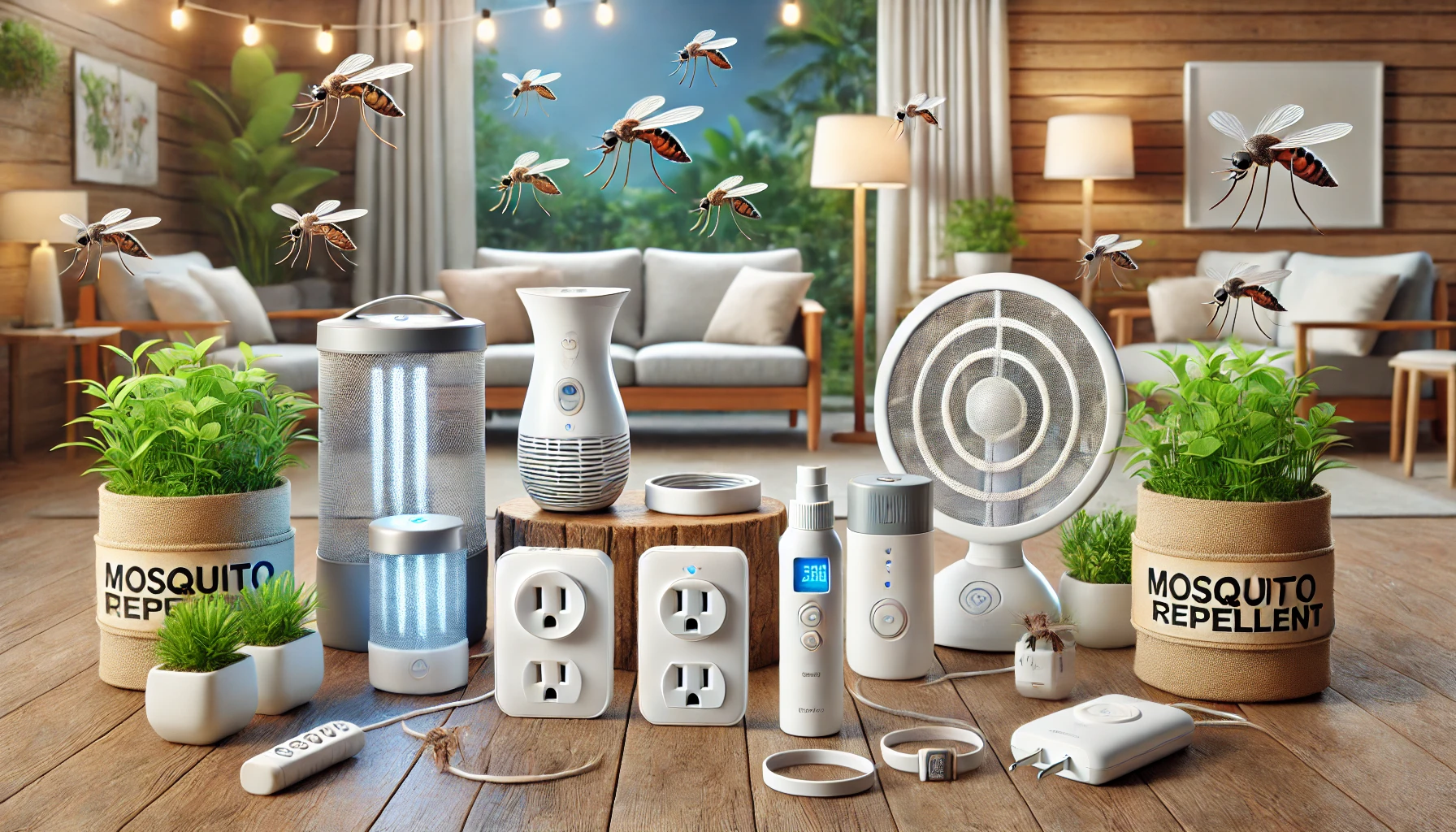
Step 5: Use Mosquito-Repellent Devices
There are devices in the market that can assist keep mosquitoes away while you’re relishing the outdoors. They’re easy to use and can be a great addition to your mosquito-fighting toolkit.Mosquito Traps
- Dynatrap: A popular mosquito trap that uses UV light to attract and capture mosquitoes, helping reduce their numbers in your yard.
Mosquito Repellent Lanterns
- Thermacell Patio Shield Lantern: Adds a warm glow and releases a repellent that creates a 15-foot mosquito-free zone—perfect for stylish, outdoor protection.
Electric Fans
- Fans: Mosquitoes are weak flyers, so setting up a fan near your seating area helps keep them away with constant airflow. A simple and effective solution.
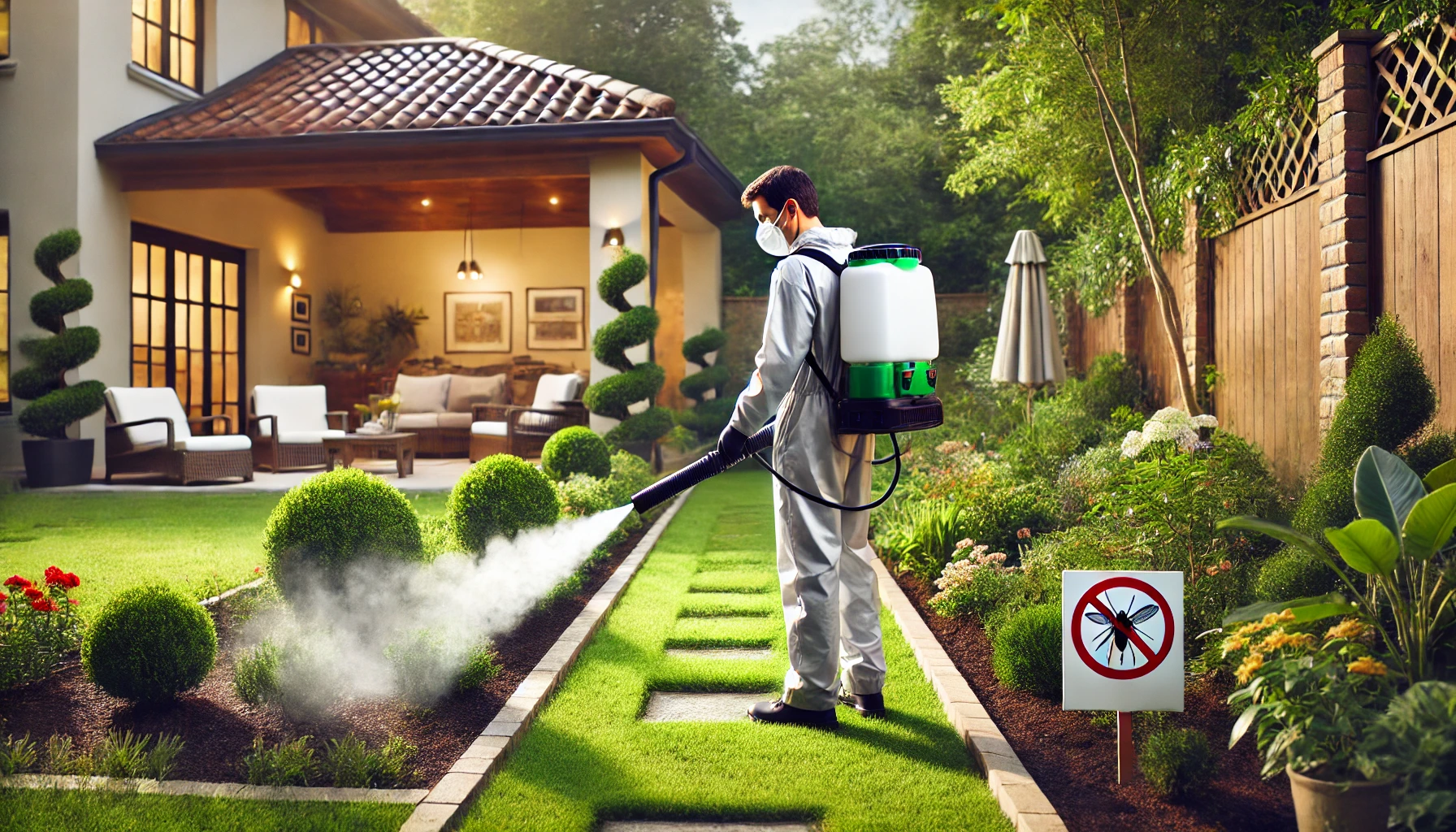 By following the above steps, you will be in a good position to enjoy the outdoor again, free from the annoyance of mosquitoes. Whether you are hosting a BBQ, studying on the porch, or simply resting in your garden, you can take simple, active measures to keep mosquitoes in the bay. After all, you deserve to enjoy fresh air without bite!
If you feel things have gone out of control, it is advised to contact pest control professionals. Our team can provide a customized approach to protect your home effectively.
By following the above steps, you will be in a good position to enjoy the outdoor again, free from the annoyance of mosquitoes. Whether you are hosting a BBQ, studying on the porch, or simply resting in your garden, you can take simple, active measures to keep mosquitoes in the bay. After all, you deserve to enjoy fresh air without bite!
If you feel things have gone out of control, it is advised to contact pest control professionals. Our team can provide a customized approach to protect your home effectively.
Visit our Species, Control, and DIY Guide sections for additional resources on mosquitoes and ways to tackle a mosquitoes infestation.





